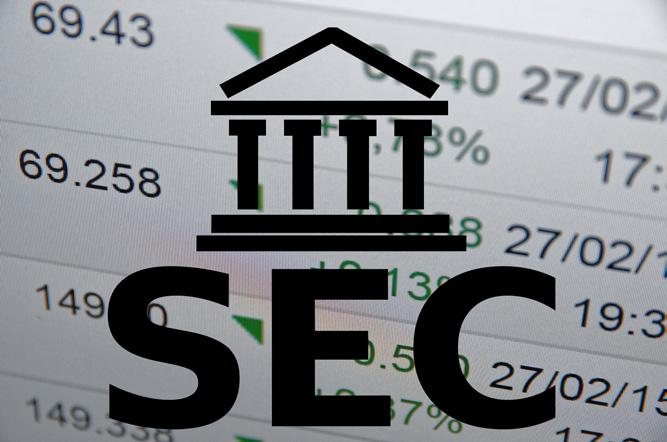
8 minute read
COVID-19 and Your Contracts: Does a Virus Excuse Performance?
Potential Coronavirus Concerns Regarding Commercial & Retail Real Estate
As worries about COVID-19 spread throughout the United States, the effects on the workplace are apparent, with many issues that touch on employment and benefits laws. Less apparent is how COVID-19 might affect real estate. To help better prepare our clients who are owners, tenants, investors, buyers or sellers of commercial and retail properties, SGR would like to bring some of these potential issues to your attention. Some advance thinking and planning now may help avoid a crisis later.
• Financing/Investors: if you are raising money for a possible purchase or renovation of retail or commercial space, COVID-19 may be a risk factor that should be disclosed to potential investors, as shoppers and customers may stay home and businesses will suffer (also a factor in the revenue issues described below). - Investors who are not local, especially international ones, may also be adversely impacted by quarantine and travel restrictions and worries about their ability to return home if they typically perform any in-person due diligence, so completing any equity requirements
for a project may be difficult. - If you have construction loans (mortgage and/or mezzanine), check your milestones, target dates, budgets and other terms in anticipation of quarantines and travel restrictions that could significantly slow down construction work. - However, there may also be opportunities in traditional financing as long as institutional and private lenders continue to be willing to lend. Interest rates are again around all-time lows, with the Fed recently cutting rates to support the market. Conversely, bear in mind that if rent flow and property values change due to COVID-19-related risks, those increased risks may offset lower rates, and loans or investments for impacted properties may actually be subject to higher rates of interest or return rates. • Due Diligence Periods: many aspects of the due diligence that is needed to evaluate potential purchases could be affected, even if you are currently in contract. Buyers should consider extending their due diligence periods to allow for delays in site visits, environmental testing, surveys and the like. - The perception of the effects of COVID-19 will be more severe on properties that have significant public spaces, like malls, movie theaters and performance spaces and properties in the hospitality space such as hotels, restaurants and amusement parks. Extra care should be given to verifying rent flow, attendance and other important factors - see the following discussion.
GO TO CONTENTS
• Revenue & Closing Conditions: Buyers should consider beefing up standard estoppel certificates from tenants and representations from sellers to take into account the possible impact of COVID-19 on businesses and rent flow. In addition to statements that rent is then current and that there are no defaults under a lease, consideration should be given to additional representations that tenants have not requested any rent relief, even if temporary. Attendance figures for retail establishments may also be relevant to track any falloff. All of this information should be brought current at closing. - Also, take another look at the conditions under which a purchase/sale contract may be canceled. Would the COVID-19 effects on attendance and tenant sales/ rent flow be a “material adverse change” or would any related change violate a covenant of closing? - If there are material adverse changes in information like rent relief, lease defaults, attendance, etc., buyers will want the right to cancel, while sellers will want to limit those rights and perhaps set high thresholds of a percentage change that permits cancellation and/or perhaps allow for a time period to renegotiate the price rather than cancellation. • Tenants & Landlords: - Check to see if you, whether a tenant or a landlord, have business interruption or rent insurance respectively and consult with your insurance agent as to whether the effects of COVID-19 fears and quarantine or travel restrictions on sales could provide
any relief. - Landlords should review their own mortgage and loan agreements to see if the lender has to be notified of changes in lease terms or defaults by tenants and what items may require lender’s consent if a tenant is asking for relief for COVID-19-related issues. • Real Property Contracts Generally: review your material contracts and agreements - note whether there are force majeure clauses, typically found in the miscellaneous section of a contract and overlooked until they may possibly be relevant. The impact of these clauses on buyer/seller rights, landlord/tenant rights, borrower/lender rights and even supplier/contractor rights is dependent on the exact language. Even if there is no force majeure provision, some states allow for a common law concept often referred to as “impossibility of performance.” (See Contracts article, p. 13.) The above items are only a sample of the ways in which COVID-19 could affect real estate matters. Make sure you consult with the SGR Real Estate Group when these issues or any of the many other problems arise. We are here to help.
If you have any questions or would like additional information, please contact any of the following:
Sean Altschul saltschul@sgrlaw.com
Mark Pottorff mpottorff@sgrlaw.com Jim Porter jporter@sgrlaw.com
Henry (Hank) Pramov hpramov@sgrlaw.com

By: Dana Richens and John McCarthy
GO TO CONTENTS
The spread of COVID-19 is causing disruption in the business world. Each day brings news of more precautionary measures by businesses everywhere. Companies are restricting domestic and/or international travel, calling on employees to work from home instead. High-profile, lucrative events in the worlds of business, sports, and culture are being postponed or canceled altogether.
The disruption will continue, and likely grow.
What will be the impact on your business? What if you have contracts with suppliers, who can no longer supply product in timely fashion, or with customers, who no longer have need of your product or services due to disruptions caused by spread of, or even mere concerns about, the virus? What are your legal rights? Can you enforce, or be excused from, your contracts?
Force Majeure Clauses
As is often the case in contract disputes, the natural starting point is the contract itself. Many commercial contracts contain a force majeure clause. French for “superior force,” force majeure events are those events, as specified by contract, that excuse an impacted party’s performance under the contract. Put another way, force majeure is an affirmative defense to
a claim for breach of contract. Such a provision allows the contracting parties to allocate in advance the risk of events that are unforeseeable, or as to which there is a lack of parties’ control.
Will a force majeure clause excuse delay in performance, or nonperformance, due to circumstances relating to COVID-19? In answering this question, the focus will be on the language of the clause itself. For example, does the clause specifically reference “disease,” or “quarantine,” or contain other language that could fairly be said to encompass circumstances associated with the spread of COVID-19? Does the clause reference “acts of God”? (Query whether the spread of a virus can fairly be considered an “act of God” in the same way as, for example, an earthquake or hurricane. Or, what if the circumstance at issue isn’t really the virus itself, but merely concerns about the spread of the virus?)
Does the clause have a catch-all provision? A catch-all provision would be something like “. . . or any other cause beyond the reasonable control of the party whose performance is affected,” found at the end of the enumeration of specific force majeure events. Catch-all provisions are generally subject to the doctrine of ejusdem generis. Latin for “of the same kind,” this doctrine means that where general words follow an enumeration of specific words or things, the general words are to be confined to things of the same kind or nature
as the particular things mentioned. Thus, the interpretation of the catch-all provision will depend on the types of events captured in the specific enumeration of events that precedes it in the force majeure clause.
The language of the clause will also determine the legal repercussions of the occurrence of the event. For example, does it require performance, but at a different date? Does it excuse performance altogether? Does it require the impacted party to provide notice? Does it require the impacted party to take certain action to attempt to mitigate the impact of its inability to perform?
Another type of contractual provision implicated by the COVID-19 outbreak is the waiver-of-defense provision, or socalled “hell or high water” clause. Here’s an example of the typical language of such a clause:
The Lessee’s obligation to pay Rent and to perform all of its other obligations under this Agreement on time is absolute and unconditional in all respects, regardless of the occurrence of any supervening events or circumstances (whether or not fundamental in the context of the arrangements contemplated by this Agreement). The Lessee must continue to perform all of its obligations under this Agreement in any event and notwithstanding any defense, set-off, counterclaim, recoupment or other
right of any kind or any other circumstance, except as otherwise expressly set forth in this Agreement.
Such a clause obligates a lessee to make rental payments to a finance lessor (or an assignee of a lessor) even if the leased equipment is damaged, defective or unfit – in other words, come hell or high water. Such clauses are common in equipment leases of all types, from copiers to aircraft, because they provide both parties to the contract with certainty about their contractual rights and obligations. Courts have generally upheld such clauses unless the lessee can show fraud on the part of, or imputed to, a finance lessor or an assignee. One New York federal court explained that “the viability of the market for commercial leases depends on the ironclad enforceability of hell or high water clauses.”

Common Law
Even if your contract does not contain a clause of the types described above, there are common law principles that may come into play in ascertaining the enforceability of your contract in the face of a COVID-19 pandemic. “Common law” refers to law that is not the subject of a particular statute, but that has developed through judicial decisions creating binding precedent. Thus, it will also be necessary to ascertain the jurisdiction whose law will apply to the interpretation of the contract.
GO TO CONTENTS






